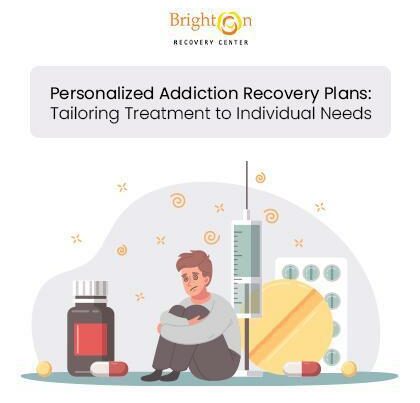Creating an At-Home Family Plan

The family is an integral part of the recovery process. Family and loved ones hold a lot of influence over someone’s ability to overcome their addiction. While a family may find that they have been unintentionally enabling someone’s usage of drugs or alcohol, they can also use those same notions to enable success. Regardless of someone’s stage in recovery, it is important to have a plan in place to help a loved one deal with addiction on the home front, and there are a few ways in which a family can curate a healthy recovery environment that is conducive to healthy, prolonged sobriety. Whether someone is moving in from a sober living facility or they are taking their first steps in an intensive outpatient program, it is important to have an established set of expectations and communication systems in order to help facilitate the recovery process towards a healthy future.
Set Reasonable Expectations
This is one of the most important things to address as someone begins to outline what life will look like while assisting a loved one with their recovery from addiction to drugs or alcohol. Despite how much effort someone suffering from addiction is putting into their own recovery, overcoming the various trials and impacts that addiction has had on someone’s life takes a long time. Not only do they have to learn various grounding techniques and coping mechanisms to deal with any number of triggers that they may experience, but they also have to begin to recontextualize all of their relationships with other people and places and establish what a new “normal” may look like for them. It isn’t reasonable to assume that someone can go to detox, come back, and never have to worry about addiction ever again. When setting a plan for living with someone recovering from addiction, know that it is a long process that requires continuous support and innumerable challenges. However, overcoming addiction alongside loved ones is an incredibly empowering experience and can help aid in the reconstruction of trust that may have deteriorated during the time that someone was engaging with drugs and alcohol.
On the other side of things, it is also important to set some expectations for the person suffering from addiction. Having them work around the house, help with chores, and carry both responsibilities and accountability are all important for someone in recovery. Not only are they incredibly impactful life skills that need to be learned, but they also aid in rebuilding trust. It is important to be able to rely on others and someone in recovery from addiction is no exception to that. When setting expectations, it is important to sit down and talk about exactly what is expected of them depending on their stage in recovery, as well as how they will be held accountable if those responsibilities aren’t kept. These expectations need to be reasonable and clearly outlined, and clear and open communication is essential in developing an effective plan for living alongside those in recovery.
Keeping Communication Open and Fair
Communication is essential in establishing expectations as well as monitoring the progress of each person in the household. It is also helpful in identifying triggers and changes that may need to be made over the course of someone’s recovery. Addressing all of these factors, as well as someone’s changing emotional state, is important for keeping on track with a healthy recovery. However, these conversations can be difficult to have. As a result, it may be beneficial to have dedicated times for the entire family to come together and discuss these issues. While this can be over dinner or a weekly meeting at the end of a long week, it is important that these meetings are scheduled and expected. Voice is incredibly important, and each person needs to be heard. If someone feels blindsided by a difficult conversation, they may resort to defensive tactics in order to get the conversation to end, or simply misspeak or say something out of a drastic emotional state, rather than address the heart of the situation and their feelings. Having time for each person to work through their thoughts before being brought to the table can help each person speak and be heard more clearly and intentionally, so that conversation stays effective and on-track. During these conversations, it is important that difficult topics are approached with respect and that each person is allowed the floor to speak their side. Avoid assumptions and create a healthy dialogue rather than operating in an atmosphere of accusations, and use evidence rather than speculation when addressing aspects of someone’s responsibilities and sobriety.
Changing Environment
Living with a person recovering from addiction can have an effect on the physical household itself. It may be important to remove certain decorations or change certain aspects of the house in order to help someone feel safe and avoid potential triggers if they have a particular association with certain objects or rooms. Being open to these changes is important. While it can be helpful for someone to face and overcome their triggers to prove their progress to others and themselves while in recovery, there is no need to feel like someone is constantly battling these triggers in their own home. Homes and family are intended to be developed into trusting, safe spaces, rather than a constant barrage of triggers and bad memories of someone’s previous addiction. Families and sufferers from addiction can work together to identify these potential triggers and adapt the household in a way that is conducive to life for all people, rather than compromise the happiness and safety of some for others. This goes for those in recovery as well as their families, as families should not have to feel they have to give up their lives in turn either. Communicating and finding a compromise can help each person reinstill trust and a positive outlook on the recovery process going forward.
The whole family is involved in recovery from addiction to drugs or alcohol. The impacts of addiction affect many more people than just the sufferer themselves and it is important to address all of the ways in which addiction has impacted someone’s life in order to create a healthy, holistic recovery plan. If you or a loved one are struggling with addiction and are ready to take the first step towards sobriety, contact Brighton Recovery Center. With an array of different plans that can all be modified to help your individual needs, accentuate your personal strengths, and work on your own weaknesses, there is always a new strategy and new approach that can be taken with the professionals at Brighton. Their community-focus and six building campus provides many ways in which someone can explore their own identity in sobriety while feeling like they are part of a safe and active community. Our Community Center has many activities available for exercise and relaxation, as well as a coffee house and thrift shop, which can help those interested in getting real-world work experience if they want to participate in the program. For more information on how we at Brighton Recovery Center can help you, contact us today at (844) 479-7035.



